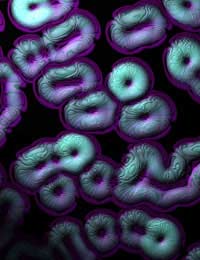Y Chromosome Analysis

Y chromosome analysis is a useful technique for analysing DNA that can be likened in one sense to studying male surnames. Think about the way that male surnames are passed down from one generation to another and continue on through sons. This mechanism is a simplistic representation of Y chromosomes. A son inherits a Y chromosome from his biological father and he also inherits an X chromosome from his biological mother. Conversely, a female would inherit an X chromosome from her biological mother and an X chromosome from her biological father. As such, when scientists study Y chromosomes, they are studying these chromosomes as they are inherited over time through males in a familial line. This type of DNA analysis has important ramifications for scientists wishing to investigate the familial ties between male members.
Understanding the Y Chromosome
Over time, Y chromosomes will slowly change. As a Y chromosome is replicated from one generation to another, the process is one whereby mistakes do not typically occur. If, however, mistakes were to occur - particularly in a large number - then the consequences would be dire. As such, while most of the time the process is an error-free one, there are errors that can occasionally occur and these errors will be passed from a father to his son. Thus, one critical application of Y chromosome analysis is to study genetic mutations.Conditions of Y Chromosome Analysis
While we can learn a great deal from the analysis of Y chromosomes, this knowledge is dependent on several factors. One factor is the decision of how many loci will be compared between the Y chromosomes. There are a minimum number of markers needed to collect the Y chromosomes into biological family sets. As a larger number of markers are utilised, the result is that lineages can be investigated more thoroughly. Our knowledge of Y chromosomes is also dependent on picking the correct loci to analyse for mutations on the Y chromosome. Loci have varying mutation rates, which means that picking the correct one is vital. It is also important to note that the greater the number of people analysed in a Y chromosome study, the better the result.Using and Applying Y Chromosome Analysis
Y chromosome analysis has many useful applications in several different fields. It can be used to provide evidence of any familial relationship between males, which is particularly valuable when there is a lack of paper evidence to establish a link. One important application for Y chromosome analysis is to help families who have immigrated frequently to many countries and the paperwork is challenging to find or perhaps does not even exist anymore. Y chromosome analysis is also useful for application to families in one area that are not even aware they are related because of surname differences, for example. Therefore, this type of analysis can establish familial links.While there are many different techniques for analysing DNA, Y chromosome analysis clearly has important and useful applications for a number of fields. It is less suited to criminal investigations but provides many benefits for investigating familial relationships, which is particularly valuable for families wishing to identify other members.
- Using DNA to Date Manuscripts
- STR Analysis - Short Tandem Repeat
- DNA Identification of September 11th Victims
- Mitochondrial DNA Analysis
- RFLP Analysis
- Effectiveness of DNA Identifiers
- Performing DNA Typing
- PCR Analysis - Polymerase Chain Reaction
- Basics of DNA Forensics Techniques
- DNA Crime Scene Collection
- Understanding Forensic Identification


Re: How was DNA Discovered?
DNA is not a real thing, the earth is flat, the sun is blue
Re: An Overview of DNA Functions
I tried to extract DNA from my refrigerator, now I have no refrigerator and my food is rotting.
Re: The Properties of DNA
what are 5 characteristics of DNA?
Re: How was DNA Discovered?
betty for the last time im trying to sleep bugger of babe
Re: How was DNA Discovered?
It is past you bedtime winnie pleas go to bved now or no france for you go back to easter island looser!!!
Re: How was DNA Discovered?
My bed time is at 9:00 and it is 9.01 in indea at the moment> i am sooooooooo naughty
Re: How was DNA Discovered?
ICE ICE DAVEY
Re: How was DNA Discovered?
This sorkis absalutely propostuous I found out about DNAfirst these loosers lied
Re: How was DNA Discovered?
meow
Re: How was DNA Discovered?
this workis realy interresting i would love to disscus more about this with you